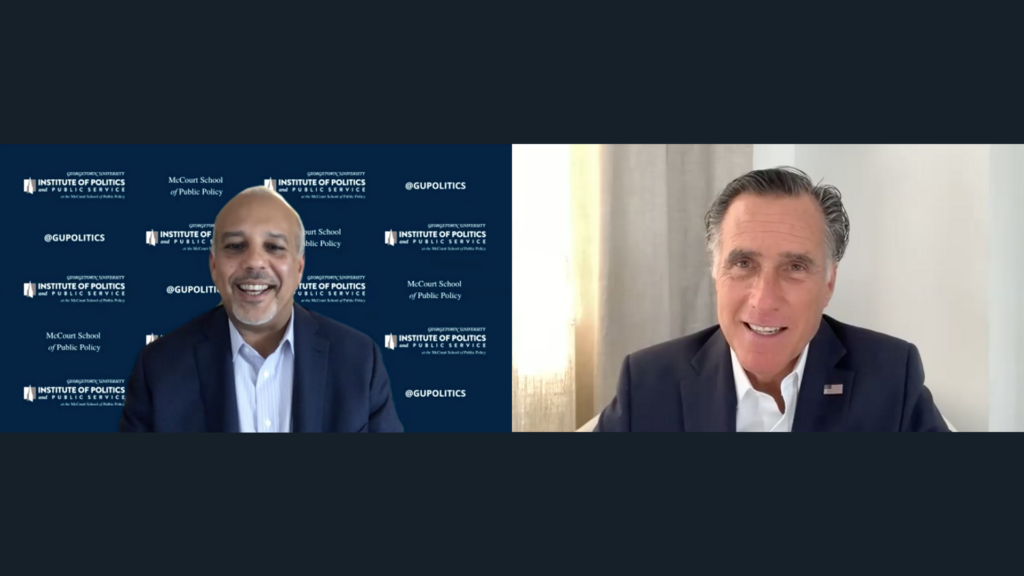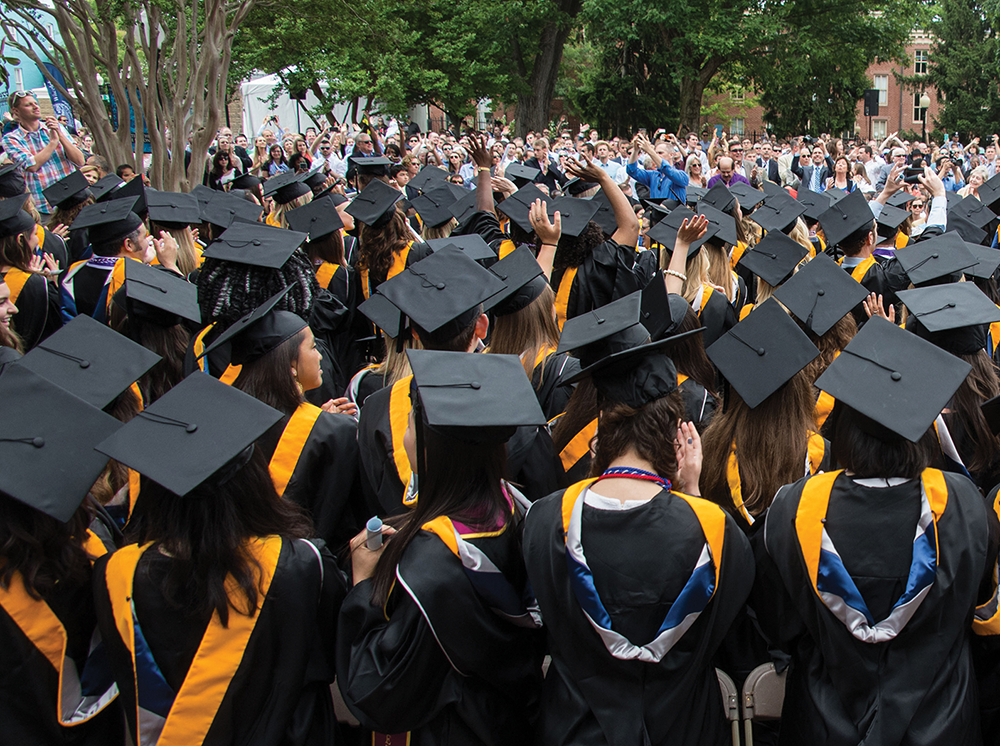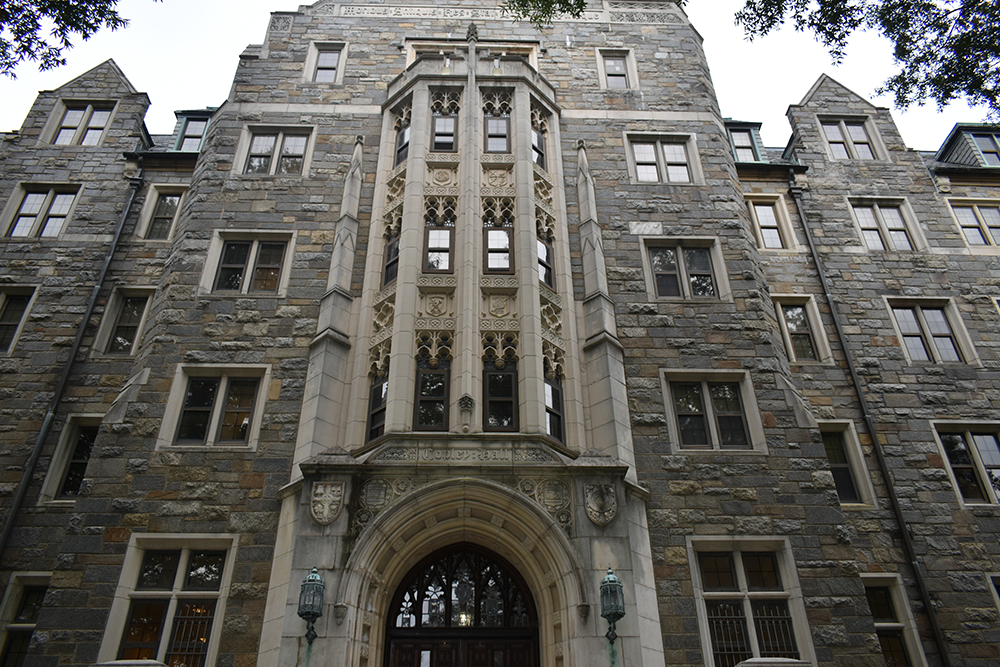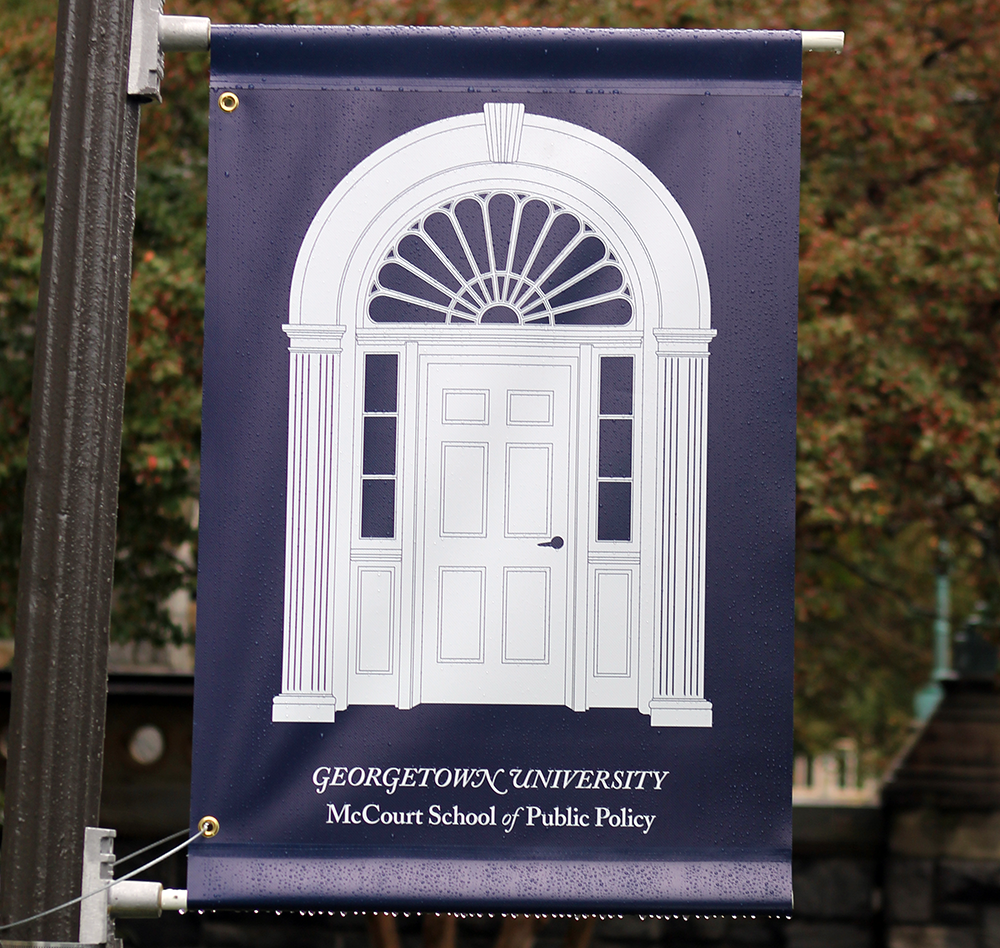The COVID-19 pandemic is a stark reminder of the challenges posed by globalization, waning U.S. leadership and the ineptitude of the Trump administration, Senator Mitt Romney (R-Utah) said in a virtual event April 28.
The conversation, titled “American Leadership During Times of Crisis: A Conversation with Sen. Mitt Romney (R-Utah),” was hosted over Zoom by the Georgetown Institute of Politics and Public Service and co-sponsored by Georgetown University College Republicans and the Georgetown Bipartisan Coalition. GU Politics Executive Director Mo Elleithee (SFS ’94) moderated the event, which centered on the challenges facing policymakers in a global health crisis.

While the Trump administration should be criticized for the United States’ lack of personal protective equipment and testing for COVID-19, the country’s unpreparedness also stems from the long-term diminishing influence of U.S. foreign policy, according to Romney.
“That first phase was not one that will stand out as being a great moment in American leadership,” Romney said. “I think the world was a bit surprised by that because they think of us as being the nation that first went to the moon, that has accomplished extraordinary things in the new economy, and yet when it came to PPE, when it came to testing and just the speed of our response, it looked slow.”
As the coronavirus rapidly spread in early March, the Centers for Disease Control and Prevention initially said healthy people should not wear masks to ensure health care workers had adequate supplies. Panic buying still caused a shortage of masks and other personal protective equipment, however. China is one of the leading global suppliers of personal protective equipment, but strained diplomatic relations and the presence of products that were not Food and Drug Administration certified on the market prevented hospitals from receiving shipments quickly, according to Vice News.
The senator said an overreliance on Chinese manufacturers’ medical supplies played a role in the botched response, reiterating his April 23 op-ed in The Washington Post warning U.S. politicians of China’s growing influence.
“We really have let China get a hold of our industries that are key to our health care, but that’s also true across our economies,” Romney said. “Because of that, I think there’s a wake up potential right now to say, ‘Wait a second. How far are we gonna let China go?’ before we say, ‘Hey, you gotta play by the same rules everyone else plays by.’”
The aftermath of the pandemic will be a critical time for U.S. leaders to strengthen their partnership with allies and assert leadership in the global order, according to Romney.
“If we collectively come together, I bet we can dissuade China from the course they’re on. If, instead, we all focus internally and only think about our domestic policies,” Romney said, “we will have missed an opportunity to create the leverage we need to make China play by the rules.”
On the domestic front, Romney said policymakers should pursue a balanced approach between federal and state regulations. As of May 2, 97% of the U.S. population is currently under a stay-at-home or shelter-in-place order, according to CNN. While Trump claimed many states could have reopened by May 1 and shared federal guidelines with governors, individual states are responsible for making their own plans to restart their economies.
While the decision to reopen businesses is made by state and local governments, other parts of the response, like ventilator production and distribution, should be managed at the federal level, according to Romney. He said the federal government did not exercise enough power.
“Were it up to me, I would have a far more centralized coordination effort,” Romney said. “I think it’s important for the people at the top to recognize there are always people out there with more information. You want to bring them in, divide the responsibilities and manage them.”
When peak infection rates begin to decline, the United States should not only focus on rebuilding the economy but also look to provide leadership in disease prevention efforts, according to Romney.
“I think we have the potential to stand out in a positive way in the recovery area, and I would suggest the development of treatments and vaccines. That kind of research work is going on around the world,” Romney said. “We may not be first, but there is certainly a lot going on here that’s not going on in a lot of places, and we may well be able to lead in that area.”
If the Trump administration’s recovery effort outshines its initial response to COVID-19, the president may still win reelection, according to Romney. He spoke in response to one student’s question about the presidential election in November.
“I think it is likely the incumbent will win,” he said.“I think it’s likely that the economy will be doing better than we’re feeling right now. We’re near a down now. It’ll probably be heading back up by November, and that will augur to the advantage of the incumbent.”




















